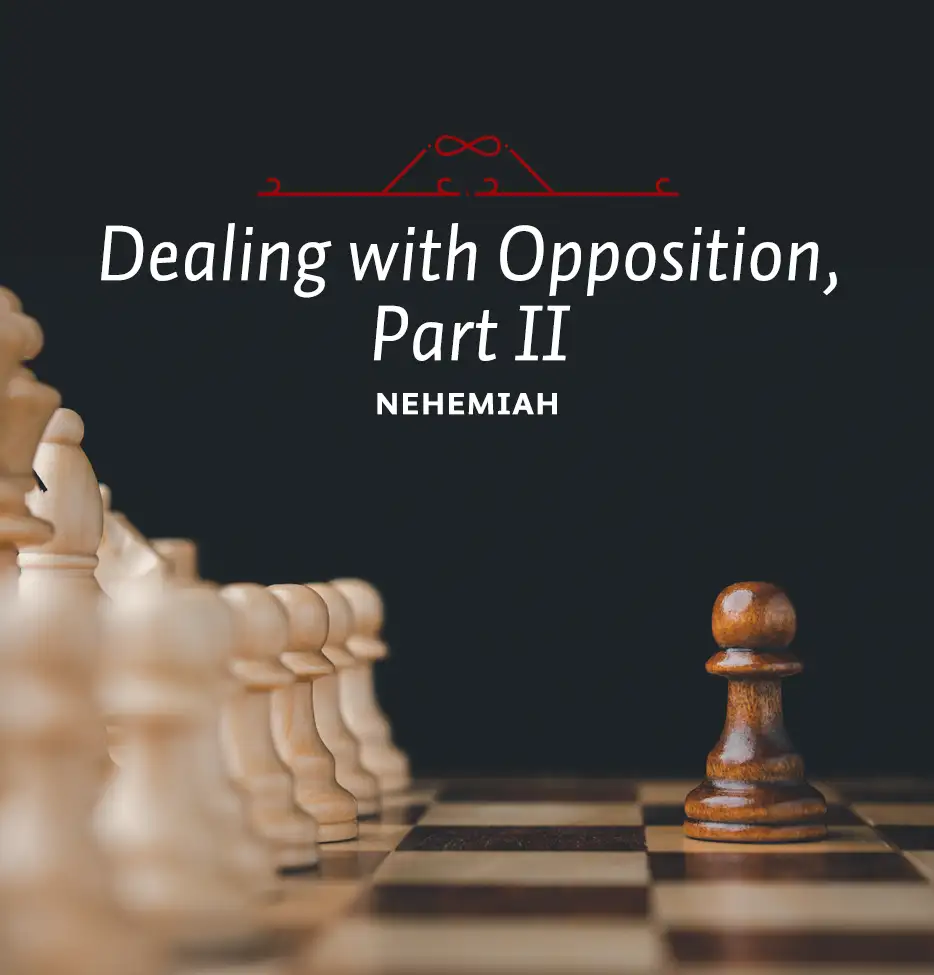What is our problem? Isn’t it our love of money, the very thing that was causing the officials of Nehemiah’s day to exploit those around them? Don’t we put the good life for ourselves first, at whatever cost?
I cannot say that the evangelical church is consciously exploiting other Christians or even the poor generally, though we are part of a system that makes it difficult for the poor to survive. But listen to this: “We and our sons and daughters are numerous; in order for us to eat and stay alive, we must get grain…. We are mortgaging our…homes to get grain…. We have had to borrow money…. We are powerless” (vv. 2-5). It is all very timely and relevant, because, whether we exploit them or not, we certainly do very little to help the poor out. We do not even do much to help poor Christians.
We raise money to feed the poor in Bangladesh, as long as the campaigns do not cramp our own materialistic pursuits. But we do nothing to feed the poor on our doorsteps. We need to repent of such wickedness. We need to get right within the walls before we build the walls higher.
The astonishing thing about this chapter is that Nehemiah succeeded. We know that he was against stiff opposition because the nobles did not respond when he had approached them earlier. Nevertheless, after Nehemiah had exposed the wrong being done and had challenged the offenders to return the pledged fields, vineyards, olive groves and houses, refund the interest and stop the usury, the nobles responded, “We will give it back…and we will not demand anything more from them. We will do as you say” (v. 12). Nehemiah made sure it happened. He called the priests and had the nobles and officials take an oath to do what they had promised. Then he performed a symbolic act, shaking out his garments as a prophetic warning that God would “shake down” anyone who had promised to do the right thing but then later reneged on it. John White makes a point of Nehemiah’s action:
Nehemiah’s actions up to that point could have been taken nowadays by any upright humanist. Calling on priests to administer an oath can represent a legality having a form of godliness. Every day godless witnesses swear over Bibles in human courts. But to exact prophetic judgment marked Nehemiah as a man who really did believe in the powers of the world to come and who was in touch with God—not only a transcendent God, but one who was immanent and close to his servants.1
That was Nehemiah’s secret, after all. He was close to God. So he had his priorities right and set a consistent example. In fact, in verses 14-18 Nehemiah reveals what his example was. He did not take the perquisites that might rightly have come to him because of his office: taxes and the good life. On the contrary, he lived out of his own means and used his personal abundance to feed those who were less fortunate. Those who were associated with him followed the pattern. They gave and worked too. It was a magnificent example of servant leadership, and it was because Nehemiah feared God. “Out of reverence for God I did not act like that,” he said, contrasting his actions with those of worldly governors (v. 15).
That is our pattern. It is the pattern of Jesus who “did not come to be served, but to serve, and to give his life as a ransom for many” (Matt. 20:28). If we lead like that, we will be able to say, as Nehemiah does in closing, “Remember me with favor, O my God, for all I have done for these people” (v. 19).
1John White, Excellence in Leadership: Reaching Goals with Prayer, Courage and Determination (Downers Grove, IL: InterVarsity Press, 1986), 85.






